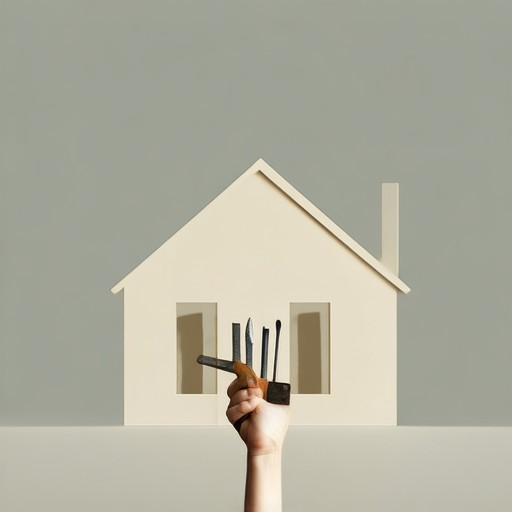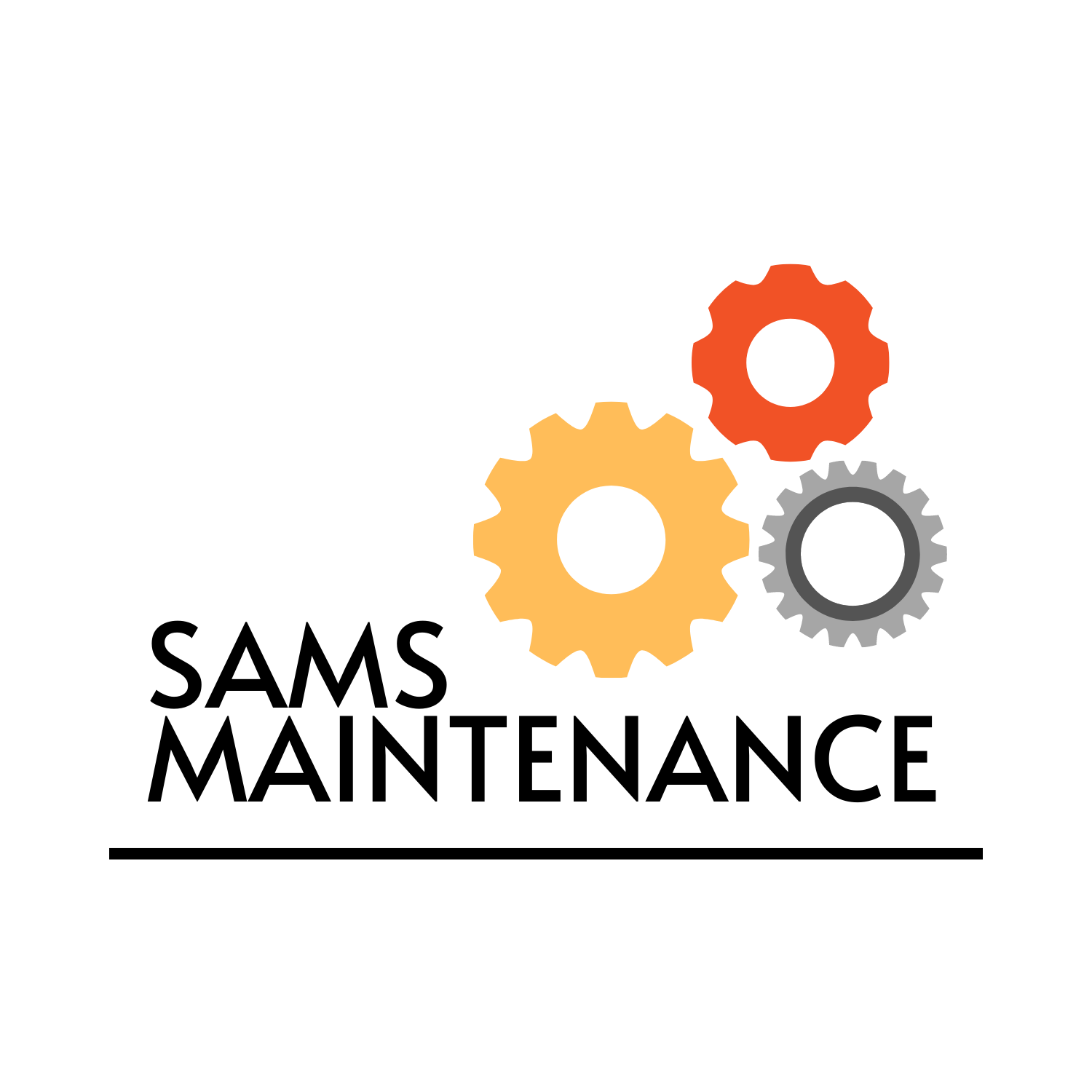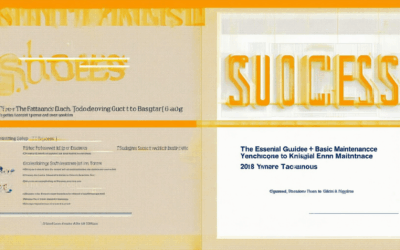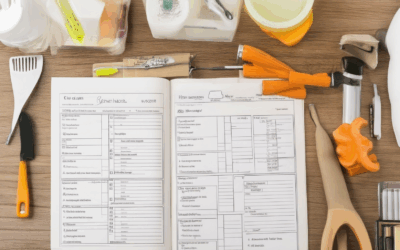Experiencing unexpected home repairs can quickly turn a calm day into a stressful one. Whether it’s a leaky faucet, a broken appliance, or structural issues, handling these situations can feel overwhelming. However, with the right knowledge and resources, you don’t have to face these challenges alone. This comprehensive guide is designed to make home repair troubleshooting easier than ever before, offering valuable insights and solutions tailored to seniors and veterans who may benefit from specialized assistance. From understanding common home repairs to exploring financial aid options, this article provides everything you need to address repairs confidently and efficiently. Read on to discover how you can navigate home repairs with ease, access free resources, and ensure your living space remains safe and functional.
Key Takeaways
- **Avoid Costly Repairs with Regular Maintenance**: Keep your home in top shape with routine checks to prevent costly issues down the line.
- **Get Free Assistance for Seniors & Veterans**: Access free repair services designed specifically for those who need support.
- **Understand Home Repair Costs**: Plan your budget with insights into average repair expenses and emergency preparedness.
- **Identify Most Expensive Repairs**: Know what major projects can cost to avoid surprises.
- **Compare Home Repair Costs**: Use comparisons to similar homes to make informed decisions.
- **Prioritize Safety and Quality**: When hiring contractors, focus on reliability and durability for long-term savings.
- **Assess Your Home’s Value**: Evaluate location, condition, and potential improvements to decide if fixing up is worthwhile.

Most Common Home Repairs
Home repairs are a common part of homeownership, and knowing the most frequent issues can help you prepare and address them promptly. Here are some of the most common home repairs and how to handle them effectively:
- Plumbing Issues : Leaky pipes, clogged drains, and malfunctioning water heaters are among the most common problems. Regular inspections can prevent costly repairs.
- Electrical Problems : Faulty circuit breakers, dead outlets, and flickering lights are common electrical issues. Hiring a licensed electrician is recommended for safety.
- Heating, Ventilation, and Air Conditioning (HVAC) : Heating and cooling systems often require maintenance to ensure efficiency. Annual tune-ups can extend the life of your system.
- Appliance Repairs : Refrigerators, dishwashers, and stoves often encounter issues like broken parts or faulty wiring. Refer to the manufacturer’s manual for troubleshooting steps.
By addressing these common repairs promptly and maintaining regular preventive care, you can save money and keep your home in great shape. For professional assistance, contact Sams Maintenance for reliable solutions tailored to your needs.
Does the VA Have Grants for Home Repairs?
Yes, the U.S. Department of Veterans Affairs (VA) provides several programs and grants to help veterans with home repairs and modifications. Here are some key options available:
- Special Housing Assistance Grant (SHA):
This grant helps eligible veterans obtain adaptive equipment for their homes, such as stairlifts, grab bars, or ramps. It is intended to enhance safety and independence for veterans with disabilities. - Home Improvement and Structural Alterations (HISA) Grant:
The HISA grant funds medically necessary modifications to a veteran’s home to improve accessibility and safety. This includes structural changes like widening doorways, installing elevators, or adding ramps. - Energy: ACP-EV Program:
The VA also offers the Energy: ACP-EV program, which provides financial assistance to veterans for energy-efficient home improvements. This can include upgrades to heating, cooling, and insulation systems to reduce energy costs and improve comfort. - State-Specific Programs:
In addition to federal programs, some states offer their own grants or partnerships for home repairs. These programs often vary by location, so it’s important to check with your state’s VA office for availability. - Non-Profit Partnerships:
Many organizations partner with the VA to provide additional support for home repairs. For example, Habitat for Humanity may offer assistance through their Veterans Build program, focusing on building accessible homes for veterans in need.
For more details about these programs, visit the official VA website at VA Benefits or contact your local VA office.

How to Learn Basic Home Repairs
To learn basic home repairs, start by identifying common issues around your living space that you can address yourself. Begin with manageable tasks like fixing leaks or repairing small appliances. Utilize online tutorials, such as YouTube videos, combined with written guides for comprehensive learning. Check reviews or ratings of tutorials to ensure reliability. Consider attending local hardware store workshops for hands-on experience and Q&A opportunities. Reading recommended books on home repair can provide in-depth knowledge. Practice on your own property, starting with low-risk tasks like changing light bulbs. Join online forums for support and advice. Enroll in online courses for structured learning. Equip yourself with essential tools like a multi-tool, screwdrivers, and wrenches. Use these tools correctly to avoid accidents. Attend workshops or seminars led by professionals for expert guidance. Stay updated on the latest techniques by following reputable blogs or newsletters. Start with small projects, like fixing a leak, and gradually tackle more complex tasks to build confidence and expertise.

Most Expensive Home Repairs
- Kitchen Renovation: Includes cabinetry, appliances, and countertops, often costing thousands.
- Bathroom Remodel: High-end fixtures, tiles, and plumbing can add substantial expenses.
- Plumbing Replacement: Especially for water heaters and major pipe work, which can be labor-intensive.
- HVAC System Installation: New furnaces or AC units, especially energy-efficient ones, can be costly.
- Electrical Rewiring: Updating older systems or adding circuits requires skilled labor and materials.
- Roof Repair/Replacement: Particularly for older roofs or those needing complete replacement.
- Asbestos Removal: Necessary in older homes and can be a significant expense.
- Driveway/Patio Installation: Using premium materials can lead to high costs.
- Structural Repairs: Addressing foundation issues requires specialized expertise and materials.
- Appliance Installation: Large items like pools tables or spas involve heavy lifting and labor fees.
- Exterior Updates: New windows or siding can be expensive but may offer long-term savings.
How Much Does the Average Home Repair Cost?
The average home repair costs vary significantly depending on the type of repair and its urgency. According to recent surveys, U.S. households typically spend between $1,000 and $5,000 annually on home repairs, with emergency repairs often costing more due to unexpected issues.
Maintenance Costs
Regular maintenance is essential to prevent costly repairs. The average annual maintenance cost for a home is approximately:
- $1,000 – $2,500 for routine tasks like HVAC cleaning, plumbing checks, and gutter maintenance.
- $500 – $1,000 for minor repairs such as fixing leaky pipes or replacing worn-out appliances.
- $2,000 – $4,000 for comprehensive maintenance, including inspections and necessary upgrades.
Emergency Repairs
Emergencies often require immediate attention and can be more expensive. Common emergency repair costs include:
- $400 – $1,500 for plumbing issues like burst pipes or water leaks.
- $600 – $1,800 for electrical problems such as circuit breaker resets or wiring malfunctions.
- $1,000 – $3,000 for HVAC repairs, including furnace or AC replacements.
- $2,000 – $6,000 for major structural repairs, such as foundation issues or roof damage.
Major Repair Costs
Some home repairs can be particularly expensive due to their complexity. Examples include:
- $3,000 – $10,000 for kitchen remodels or appliance replacements.
- $8,000 – $20,000 for bathroom renovations or complete plumbing overhauls.
- $15,000 – $50,000 for large-scale projects like adding a room or remodeling the entire house.
Tips for Budgeting
To prepare for potential home repairs, consider the following:
- Budget $1,000 – $2,500 annually for maintenance and minor repairs.
- Set aside $2,000 – $5,000 for emergency repairs and unexpected issues.
- Inspect your home regularly to catch potential issues early.
- Consult professionals for estimates before starting any major project.
By understanding typical repair costs and planning ahead, homeowners can manage their budgets more effectively and address issues before they escalate. Remember to prioritize safety and quality when hiring contractors to ensure reliable service and long-lasting solutions.

How to Determine If a House Is Worth Fixing Up
To assess whether a house is worth fixing up, consider the following key factors:
- Location:** The house’s value is significantly influenced by its neighborhood. A house in a desirable area with good schools, amenities, and growth potential may be worth investing in.
- Comparison to Nearby Properties:** Compare the house’s condition and features to similar properties in the area. This helps establish a fair market value and identify opportunities for improvement.
- Condition Assessment:** Evaluate the structural integrity, interior, and exterior of the house. Look for issues like roofing problems, uneven floors, or outdated systems that may require costly repairs.
- Property Potential:** Consider the house’s potential for expansion or renovation. Features like extra land, unused spaces, or the ability to add value through upgrades can make a house worth fixing up.
- Price Comparison:** Check the asking price against similar properties. If the house is priced below market rate, it might be a good investment opportunity, though always verify the condition and potential costs.
- Long-Term Investment:** Assess the area’s growth potential. Fixer-uppers in areas with rising property values can often yield strong returns after renovations.
- Budget and Skill Level:** Evaluate your budget and DIY skills. Renovation costs can vary widely based on the scope of work, so it’s important to set realistic expectations.
For a more thorough evaluation, consider consulting a real estate agent or professional inspector to estimate repair costs and determine the house’s true potential.




0 Comments